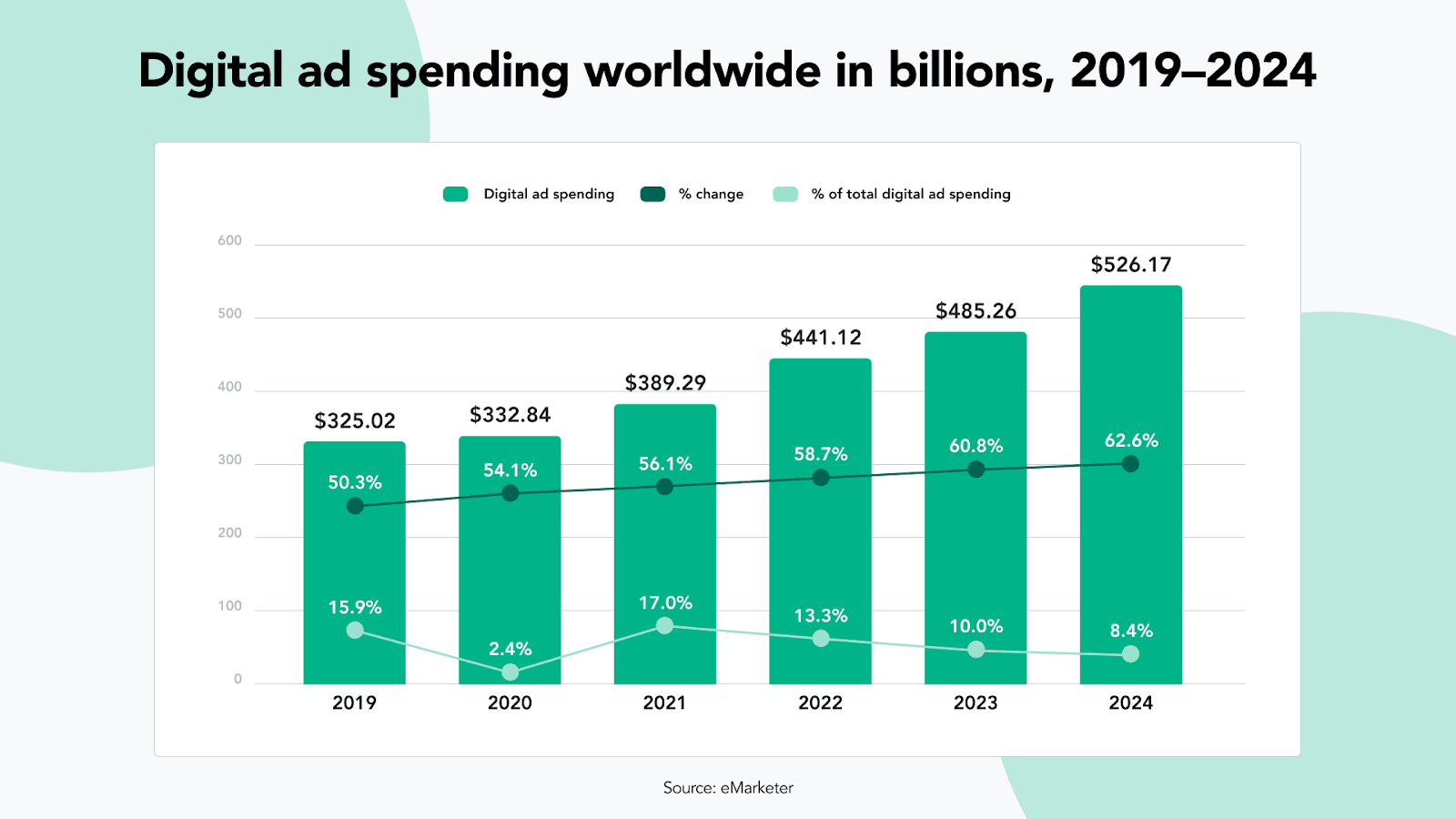
Are you looking to boost your SEO efforts and take your online presence to the next level? Look no further! In this ultimate guide, we will show you how to supercharge your SEO using social media publications. Social media platforms have become powerhouses for content distribution and engagement, making them valuable tools in any SEO strategy.
By incorporating social media publications into your SEO efforts, you can unlock new opportunities for increased visibility, targeted traffic, and improved search rankings. Whether you’re a seasoned marketer or just starting out, this guide will provide you with the knowledge and strategies you need to make the most of social media to enhance your SEO results.
We’ll delve into the key benefits of leveraging social media publications, explore different platforms and their features, and share expert tips on how to optimize your content for optimal SEO impact. So, buckle up and get ready to take your SEO game to new heights with the power of social media publications!
The relationship between social media and SEO
Social media and SEO may seem like separate entities, but they are closely intertwined. Search engines, like Google, consider social media signals as indicators of a website’s credibility and relevance. When your content is widely shared and engaged with on social media, it sends positive signals to search engines, leading to improved search rankings.
In addition to the direct impact on search rankings, social media platforms also serve as a valuable source of organic traffic. By optimizing your social media profiles and content for SEO, you can attract targeted visitors to your website, further boosting your overall SEO efforts.
How social media signals impact search engine rankings
Social media signals, such as likes, shares, and comments, play a significant role in determining search engine rankings. When your content receives high levels of engagement on social media, it indicates to search engines that your content is valuable and relevant to users. As a result, search engines are more likely to rank your website higher in search results.
However, it’s important to note that not all social media signals are created equal. Search engines prioritize quality over quantity, meaning that engagement from authoritative and influential social media accounts will have a greater impact on your search rankings. This highlights the importance of building a strong social media presence and fostering relationships with influencers in your industry.
Choosing the right social media platforms for SEO
With numerous social media platforms available, it’s essential to choose the ones that align with your SEO goals and target audience. Each platform has its own unique features and user demographics, which can significantly impact the effectiveness of your SEO efforts.
For example, Facebook is the largest social media platform, making it ideal for reaching a wide audience. Twitter, on the other hand, is known for its real-time nature and trending topics, making it suitable for staying up-to-date with industry news and engaging in timely conversations. Instagram, with its visual nature, is perfect for businesses that rely on stunning visuals to attract and engage their audience.
When selecting social media platforms for SEO, consider your target audience’s preferences, behavior, and the type of content you plan to share. By focusing your efforts on platforms that align with your goals, you can maximize the impact of your SEO strategy.
Optimizing your social media profiles for SEO
Just like your website, your social media profiles can be optimized to improve your search visibility. When users search for your brand or related keywords on search engines, your social media profiles may appear in the search results. By optimizing your profiles, you can increase the chances of users discovering and engaging with your social media content.
Start by ensuring that your profile names and handles are consistent across all social media platforms. This helps search engines associate your profiles with your brand and improves your overall online visibility. Additionally, optimize your profile descriptions and include relevant keywords to improve your chances of appearing in relevant search queries.
Furthermore, make use of backlinks in your social media profiles. Linking back to your website or specific landing pages can help drive traffic and improve your website’s SEO. Lastly, regularly update your profiles with fresh content and engage with your audience to demonstrate activity and relevance.
Creating SEO-friendly content for social media publications
When it comes to social media publications, the content you share plays a crucial role in attracting engagement and driving traffic to your website. To ensure your content is SEO-friendly, start by conducting keyword research. Identify relevant keywords and phrases that are popular among your target audience and incorporate them naturally into your social media posts.
In addition to keywords, focus on creating compelling and shareable content. This can include informative blog posts, captivating images, engaging videos, or interactive infographics. By providing valuable and visually appealing content, you increase the likelihood of users engaging with your posts and sharing them with their own networks.
Remember to optimize your content for each social media platform. Different platforms have varying character limits, image dimensions, and video requirements. By tailoring your content to each platform’s specifications, you can ensure maximum visibility and engagement.
Leveraging hashtags for SEO on social media
Hashtags are a powerful tool for increasing the reach and discoverability of your social media content. By including relevant hashtags in your posts, you can connect with users who are interested in similar topics and increase the visibility of your content.
To leverage hashtags for SEO on social media, start by researching popular and trending hashtags in your industry. Tools like Hashtagify or RiteTag can help you identify the most relevant and effective hashtags for your content. Additionally, consider creating branded hashtags to strengthen your brand identity and encourage users to engage with your content.
When using hashtags, ensure they are relevant to your content and not overly generic. Specific and targeted hashtags have a higher chance of attracting engagement from users who are genuinely interested in your niche. Lastly, monitor the performance of your hashtags and adjust your strategy based on the engagement and reach they generate.
Engaging with your audience on social media for SEO benefits
Social media is not just a platform for broadcasting your content; it’s also a place to engage with your audience and build meaningful relationships. By actively participating in conversations, responding to comments, and addressing customer queries, you can foster a sense of community and trust with your audience.
Engaging with your audience on social media has several SEO benefits. Firstly, it encourages users to spend more time on your social media profiles, signaling to search engines that your content is valuable and engaging. Secondly, it increases the likelihood of users sharing your content, amplifying its reach and potentially attracting backlinks to your website.
To effectively engage with your audience, be authentic and genuine in your interactions. Respond promptly to comments and messages, and provide helpful and informative responses. Encourage discussions and ask questions to encourage user participation. By fostering a positive and interactive environment, you can enhance your SEO efforts through increased engagement and social signals.
Measuring the SEO impact of your social media efforts
To determine the effectiveness of your social media publications on SEO, it’s important to track and measure your results. This allows you to identify what strategies are working and make data-driven decisions to optimize your future efforts.
Start by setting clear goals and key performance indicators (KPIs) for your social media SEO strategy. These could include metrics such as website traffic, engagement rate, conversion rate, or search engine rankings. Utilize analytics tools provided by social media platforms, such as Facebook Insights or Twitter Analytics, to monitor your performance and track your KPIs.
Additionally, use web analytics tools like Google Analytics to measure the impact of your social media efforts on your website’s SEO. Track the referral traffic from social media platforms, analyze the engagement and conversion rates of social media visitors, and identify any trends or patterns that can be optimized.
Case studies: Successful examples of using social media for SEO
To further illustrate the power of social media publications in enhancing SEO, let’s explore a few successful case studies:
1. Company A: By consistently sharing high-quality content on LinkedIn and engaging with industry professionals, Company A increased their website traffic by 30% within six months. Their social media efforts not only improved their search rankings but also resulted in valuable collaborations and backlinks from influential individuals in their industry.
2. Company B: Through targeted Instagram campaigns and strategic use of hashtags, Company B grew their follower base by 50% and experienced a 20% increase in organic search traffic. By leveraging the visual nature of Instagram and optimizing their content for key industry keywords, Company B successfully attracted and engaged their target audience.
These case studies highlight the potential impact of social media publications on SEO and the importance of developing a tailored strategy based on your specific goals and target audience.
Conclusion: Integrating social media and SEO for maximum impact
In conclusion, social media publications can be a game-changer in your SEO efforts. By leveraging the power of social media platforms, you can increase your online visibility, attract targeted traffic, and improve your search rankings. Remember to choose the right social media platforms for your target audience, optimize your profiles and content for SEO, engage with your audience, and track your results.
Don’t underestimate the power of social media in driving SEO success. Embrace the opportunities it presents, be creative with your content, and continuously adapt your strategy based on data and insights. With the ultimate guide provided here, you now have the knowledge and tools to supercharge your SEO with social media publications. So, get started and unlock the full potential of social media for your SEO success!br/>




